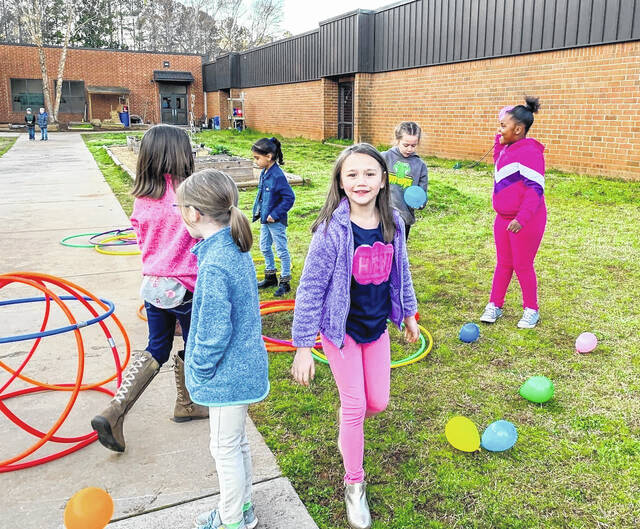Kids allowed to play the way their parents did — unstructured and independently — now with proven academic benefits
CENTRAL — Several years ago Central Academy of the Arts transformed their school days with the first-ever “Play Club” in South Carolina.
The club was started in recognition that American kids are suffering from depression, anxiety and isolation at unprecedented rates, and research has traced much of that problem to a decrease in free, unstructured interaction with their peers through play. Kids allowed to play the way their parents did … unstructured and independently … now show proven academic benefits as well.
Central Academy started an after-school Play Club in the fall of 2019, with the goal of giving students the opportunity for daily, unstructured, outdoor play — in addition to recess.
“When we were growing up, most kids played with neighbor friends after school and all summer long with little supervision. Now, people are not as trusting, and kids don’t roam free outdoors. As a result, many kids don’t get the social interaction they need to develop into empowered adults. Play Club is an intentional way for us to provide that for our students,” Kevin Stinehart, director of the program, said.
Now an academic study out of Long Island University is proving Central Academy’s intuition correct. After two years of research work, they found fascinating results that were a surprise to nearly everyone. The researchers were curious to see if Play Club participants would have a slight uptick in academic scores, in addition to the social and emotional benefits of unstructured play. The researchers from Long Island University found a significant uptick in both math and reading scores in the Play Club students in the first-ever research study of this type.
Stephanie Garst, executive director of the U.S. Play Coalition states, “Play Club is a great opportunity for the students at Central Academy! By allowing children more time to explore through play with Play Club, Central Academy is encouraging independence, self-reliance and resilience — skills that are crucial to their development. I hope more schools follow their lead!”
Kevin Stinehart states, “We always knew that our students would benefit immensely from more play with their peers, but the fact that we now have concrete evidence from this research is so exciting! It shows that play isn’t just crucial for developing students socially and emotionally, but academically as well. Play is vital to help foster the whole child, and we’re so thankful to now have the evidence to back up what we perceived to be true.”






